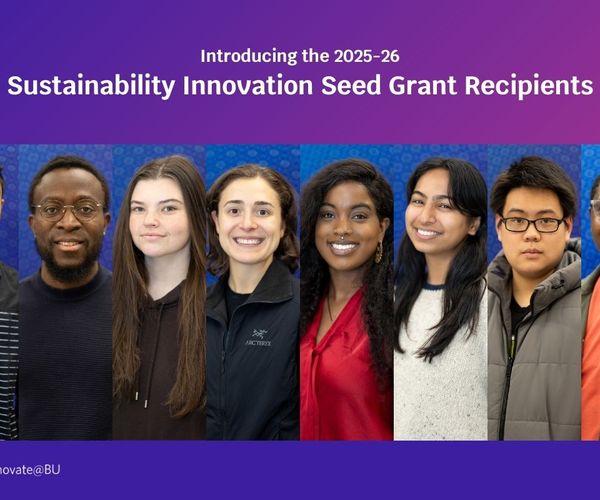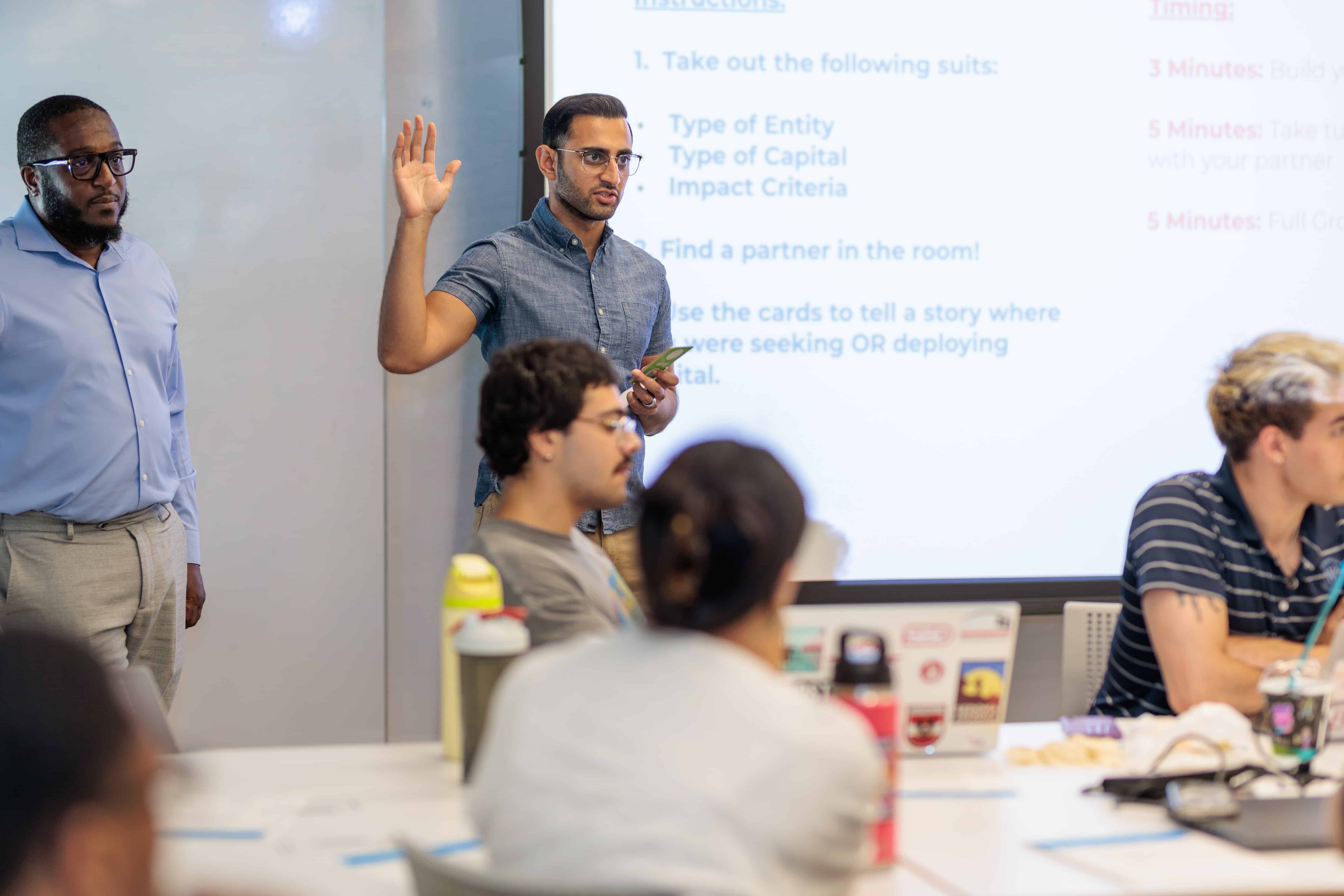This fall, BU students proposed new ways to make the campus more sustainable—from rethinking lab waste to redesigning streetlights. Through the Sustainability Innovation Seed Grants, a partnership between BU Sustainability and Innovate@BU, 10 projects were awarded $500 and mentorship to kick-start solutions addressing the University’s most pressing climate and waste challenges.
Each project aligns with the Boston University Climate Action Plan and tackles one or more of five key topics: zero waste, emissions and energy, environmental justice, education and engagement, and climate resilience. While the goal is to make BU more sustainable, many projects also have plans to scale far beyond campus.
From climate-friendly lab research to community-based reuse platforms, this year’s recipients are redesigning systems, repurposing waste, and rethinking what sustainability means in everyday student life.
Meet the 2025 Sustainability Grant Recipients:
Trinity Olander (CAS’27)
Averra is a portable biosensor that measures soil nutrients and carbon on-site, enabling sustainable land use and climate-smart agriculture. Averra’s system makes soil testing faster and more affordable for small farms while helping farmers qualify for climate finance.
Abdullateef Lawal (Questrom’27)
Brigers is a mentorship and climate storytelling platform connecting BU students and alumni with mentees interested in sustainability. It builds climate communication skills through digital storytelling and peer engagement, expanding environmental awareness and action.
Siddhi Padmanabhan Iyer (Questrom’28)
DormCycle is an on-campus resale marketplace for used dorm goods. DormCycle keeps usable items out of landfills by enabling students to safely buy, sell, or donate furniture and supplies each semester.
Anushri Roy (Sargent’27)
LightAdapt is a research-driven project exploring how streetlight design affects tree health and urban ecosystems. LightAdapt contributes to BU’s climate resilience planning and informs policy improvements for lighting design standards across Massachusetts.
Gregory Joseph (Questrom’26)
Campus Waste Reduction and Circular Economy Platform is a centralized resource-sharing system that tracks and recirculates materials like lab equipment and electronics across campus. The project supports circular economy principles and aims to reduce redundant purchasing while fostering environmental responsibility.
Asianna Haughton (ENG’25)
MycoEco is a tree-free paper alternative made from fungal mycelium and agricultural waste. The process produces compostable, printable paper without harsh chemicals, offering a scalable, low-energy alternative to traditional pulp-based paper.
Paul Adu (ENG’27)
Smart Energy Feedback System is a network of AI-powered smart plugs and dashboards that help students monitor and reduce dorm energy use. By making energy use visible and actionable, the project encourages behavioral change and supports BU’s carbon reduction targets.
Kaitlyn Alimenti (Chobanian & Avedisian SOM’25)
SciBands is a reusable sealing solution for biological samples, designed to replace single-use parafilm in research labs. The project reduces plastic waste while improving durability, watertightness, and cost-effectiveness in scientific research.
Anson Zhu (CAS’27)
ShareBite is a web platform for redistributing leftover event food on campus. By connecting hosts with students in need, ShareBite reduces food waste and supports food security while building a more connected campus community.
Pranav Sultania (ENG’26)
SnapPump is a modular, low-power pump system that retrofits into BU lab and building water systems. With bistable electromagnetic actuation, it reduces energy usage, noise, and maintenance, while enabling precise digital control and supporting campus decarbonization goals.
Stay tuned for project updates in the spring as students pilot their ideas and begin measuring their impact on campus and beyond.




